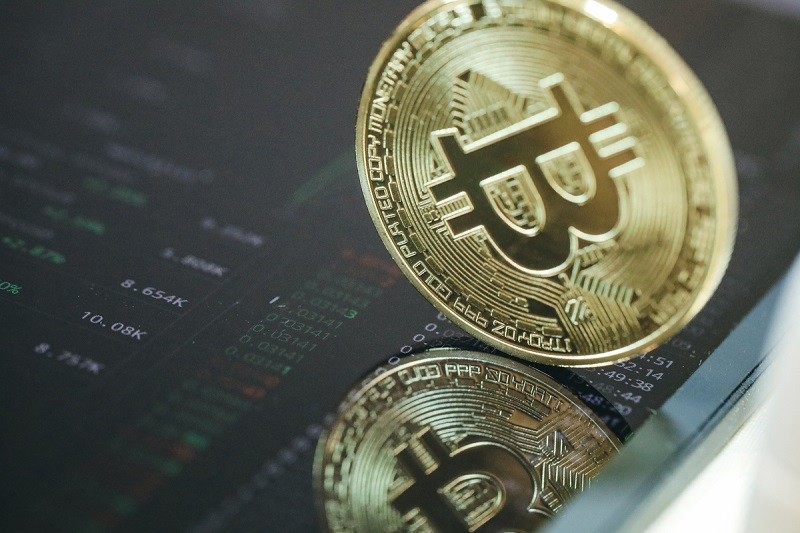The compatibility of cryptocurrencies with Islamic finance principles is a topic of both opportunities and challenges. This article delves into the concept of cryptocurrency from an Islamic perspective, exploring its potential alignment with Shariah law and the unique considerations it presents.
Cryptocurrency and Shariah Compliance
Islamic finance is governed by Shariah law, which emphasizes justice, fairness, and prohibition of riba (interest), gharar (uncertainty), and maysir (gambling). To evaluate the compliance of cryptocurrencies with these principles, it is essential to understand their nature and operational framework. Cryptocurrencies, like Bitcoin, operate on blockchain technology, providing a transparent, secure, and decentralized system for transactions. This inherent transparency and security can align with the Islamic values of trustworthiness and fairness in financial dealings.
Scholars of Shariah have engaged in thorough discussions regarding the acceptability of cryptocurrencies within the framework of Islamic law, offering varied opinions on the subject. It's fair to say that a significant number of these scholars find cryptocurrencies to be non-compliant with Shariah principles; however, there exists a faction that deems them compliant. Additionally, a third segment remains neutral, refraining from commenting on the Shariah legality of cryptocurrencies. Some scholars argue that cryptocurrencies fail to meet the criteria for being considered as money under Shariah due to their lack of intrinsic value, the anonymity of ownership, and their instability. Similarly, others assert that, according to Islamic principles, money should be asset-backed, and Bitcoin, among other cryptocurrencies, does not fulfil the requirements to be considered money in Shariah due to the lack of government regulation. Furthermore, Asrorun Niam Sholeh, the Head of the National Ulema Council of Indonesia, issued a fatwa on November 11, 2021, declaring cryptocurrencies as impermissible due to their association with gharar (uncertainty), betting, and potential harm, all of which contravene Islamic laws and teachings. This stance is echoed by the Grand Mufti of Egypt, Shawqi Allam, and the secretary-general of the International Union of Muslim Scholars (IUMS), Sheikh Ali Qaradaghi, who also regard cryptocurrencies as non-permissible.
Conversely, some scholars argue that Bitcoin aligns with Shariah laws as it lacks an emitter, monetary authority, or transparency. The Shariyah Review Bureau also considers cryptocurrencies and tokens as acceptable forms of money within Shariah, citing their utility in exchange transactions and fulfillment of other criteria like maal (property), manfa'ah (usufruct), haqq (right), and dayn (liability). Additionally, there is Shariah guidance on the payment of zakat on cryptocurrencies, exemplified by rulings such as the Perlis Fatwa Council's decision to levy zakat on Bitcoin, and the South African Islamic Seminary Daru Uloom Zakariyya's fatwa recognizing cryptocurrencies as maal (wealth) and therefore eligible for zakat. Hence, zakat payments can be made with cryptocurrencies and on investments in crypto assets, provided they are deemed Shariah-compliant after thorough screening. This compliance must also adhere to the specific fatwas and regulations prevailing in the zakat payer's jurisdiction. Thus, thorough research is needed to establish the Shariah position on cryptocurrencies. Similarly, the International Islamic Fiqh Academy, under the Organization of Islamic Cooperation (OIC), in its resolution No. 237 (8/24) in 2021 concerning electronic currencies, has indicated the necessity for further study before issuing a definitive judgment on the matter.
Opportunities for Shariah-Compliant Cryptocurrencies
Cryptocurrencies hold the potential to significantly enhance financial inclusion within the realm of Islamic finance. By providing essential banking services to those currently without access, especially in regions with predominantly Muslim populations and limited financial infrastructure, cryptocurrencies could bridge the gap in financial services availability. This is particularly pertinent in facilitating economic empowerment and financial autonomy in accordance with Islamic finance's inclusive goals.
Furthermore, the use of blockchain technology in cryptocurrencies introduces an unprecedented level of transparency and security to financial transactions. This technology ensures that all transactions are clear, risk-free, and reliably recorded, without the possibility of tampering or fraud. Such characteristics are inherently aligned with Islamic finance principles, which prioritize trustworthiness and fairness in all financial dealings.
Additionally, the operational model of cryptocurrencies naturally eschews the concept of riba, or interest, which is strictly prohibited in Shariah law. Unlike traditional banking systems that rely heavily on interest-based transactions, cryptocurrencies are built on a transactional model that supports asset-backed activities. This model can be strategically designed to avoid the inclusion of interest, making cryptocurrencies a viable option for Shariah-compliant financial activities. By adhering to these principles, cryptocurrencies not only uphold the foundational tenets of Islamic finance but also offer a modern financial tool that can be harmoniously integrated into its practices.
Challenges and Considerations
The inherent high volatility and uncertainty of cryptocurrency values have sparked concerns regarding gharar, a concept that refers to ambiguity and risk, which is avoided in Shariah-compliant transactions. To align cryptocurrencies with Islamic finance principles, it's imperative to explore and implement mechanisms that can effectively mitigate such uncertainties and instabilities. This adaptation would pave the way for cryptocurrencies to be embraced within the stringent frameworks of Shariah compliance, ensuring that they contribute positively to Islamic financial systems without compromising on the core values of clarity and risk aversion.
Additionally, the decentralized nature of cryptocurrencies presents a unique set of challenges for regulatory oversight. Such oversight is crucial to ensure that Islamic financial transactions remain within the ethical and legal boundaries set by Islamic law. The absence of a centralized authority in cryptocurrency networks complicates the enforcement of these standards, making it essential to develop innovative regulatory approaches that can adapt to the decentralized paradigm of digital currencies while maintaining strict adherence to Shariah principles.
Furthermore, the calculation of zakat, an obligatory form of almsgiving in Islam, becomes particularly complex when applied to cryptocurrencies. The fluctuating values of digital currencies, coupled with the anonymity of cryptocurrency holdings, create obstacles in determining the precise amount of zakat due. Therefore, establishing a clear and comprehensive framework for the zakat calculation on cryptocurrencies is crucial. Such a framework would need to account for the dynamic nature of digital assets, ensuring that zakat obligations are fulfilled accurately, further facilitating the integration of cryptocurrencies into the Islamic financial landscape.
Moving Forward
For cryptocurrencies to be fully embraced within Islamic finance, comprehensive scholarly research and regulatory frameworks need to be developed, addressing the challenges and ensuring adherence to Shariah principles. Islamic financial institutions and scholars must collaborate to establish guidelines that consider the unique nature of digital currencies while upholding the ethical, legal, and social mandates of Islamic finance.
Conclusion
Cryptocurrency presents both significant opportunities and challenges from an Islamic finance perspective. Its potential for financial inclusion, transparency, and adherence to the prohibition of interest aligns with the objectives of Islamic finance. However, addressing the challenges related to uncertainty, regulatory oversight, and zakat calculation is crucial for its acceptance and integration into the Islamic financial system. As the digital currency landscape evolves, ongoing dialogue, research, and regulatory development are essential to harness its potential within the framework of Shariah compliance.










